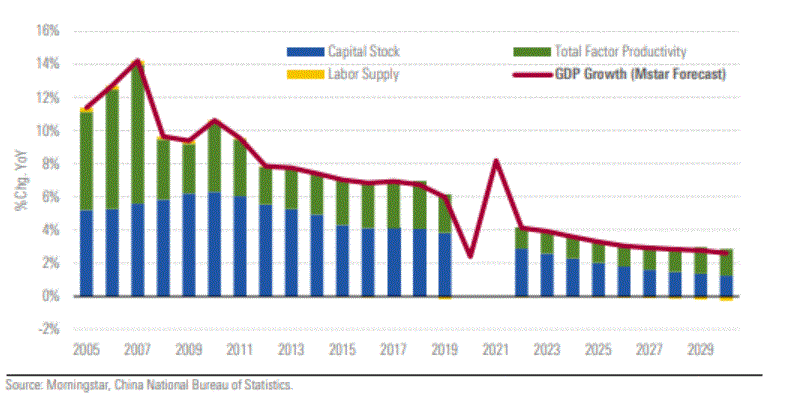Future Economic of China: Between Potential and Danger
The question of China's economic future has sparked debate and speculation in financial and academic circles. Analysts such as Ruchir Sharma, CEO of Rockefeller International, have raised similar concerns to those expressed during Japan's economic decline in the 1990s. But what are the factors behind these concerns, and what does the future look like for the Chinese economy?
The Aging of the Population and the High Level of Debt
One of the most discussed issues concerns demographic aging in China. As was the case in Japan in the 1990s, an aging population may lead to a shrinking workforce and, consequently, an economic slowdown. Another critical factor is the country's high level of debt, which has set alarm bells ringing among economists and policymakers.
The Role of the Government in the Chinese Economy
The Chinese government has strong control over the economy, and this has been flagged as a potentially problematic factor. While government maneuver can provide a safety net in times of crisis, excessive interference can also stifle innovation and economic efficiency.
Two Possible Scenarios: Recovery or Crisis?
Government Stimulus Measures
The Chinese government appears to have taken a more accommodative approach recently, introducing measures such as looser rules for mortgage lending and tax incentives for home buyers. These measures could contribute to a near-term economic recovery, similar to that which occurred in Japan after the housing crisis of the 1990s.
Technological Advances and Innovation
Another positive for China is its technological advantage in areas such as artificial intelligence and robotics. Despite recent restrictions on some of its major technology companies, China appears to maintain a significant competitive edge in these sectors.
The Dark Side: Risks in the Real Estate Market
However, not everything is rosy. China's property market is showing signs of strain, with house and land prices falling by 5% year-on-year and government earnings from land sales falling by 20%. This type of volatility in the real estate market cannot be ignored and raises questions about the sustainability of China's economic growth.
Impact of Interest Rates and Capital Flow
A further obstacle could come from rising interest rates in the United States. This would reduce China's ability to use monetary policy to support real estate markets. Furthermore, a rise in interest rates could trigger an outflow of capital from the country, putting pressure on the Chinese currency, the renminbi.
Conclusion: An Uncertain Future but with Potential
While concerns about China's economic future are well-founded, there are also reasons for optimism, including rapid technological innovation and potential government stimulus measures. However, with risk factors such as an aging population and instability in the real estate market, the overall picture remains uncertain. It is essential that analysts, investors and policymakers continue to monitor these indicators to get a clear picture of where China's economy may be headed.




Pingback: Mark